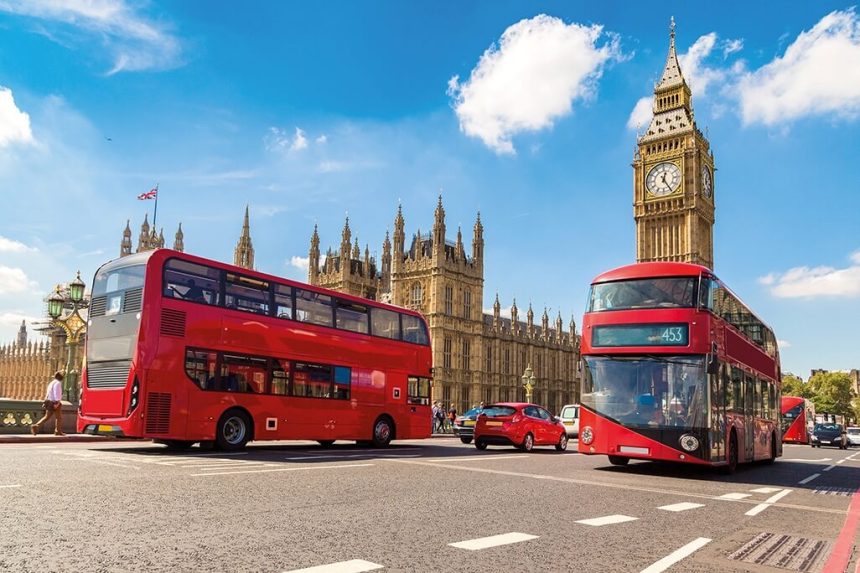The Transport Select Committee started to take oral evidence on its inquiry “Buses Connecting Communities” on 26 February.
Further, the government’s Bus Services (No 2) Bill is also now moving steadily through its parliamentary process; having completed its Lords Committee stage, it won’t be long before it moves to the Commons.
Buses and bus policy are receiving a fair degree of parliamentary debate and scrutiny right now. This is no bad thing, of course. But what struck me about the first oral evidence session of the Transport Select Committee’s buses inquiry was that, interesting as the discussion was, it didn’t relay much that was new or surprising.
At the heart of everything is the age-old issue of funding, with many of the witnesses remarking that what is needed is certainty of funding, and long-term funding at that.
There is considerable merit in this, of course, and the short-term approach to funding the bus sector is in stark contrast to the five-year funding settlements that the rail sector has enjoyed since privatisation. So, if five-year settlements are good for rail, why not for bus too?
Hints from DfT on future funding
Sadly, there is now one flaw in this argument as the consultation paper on the plans for Great British Railways that the Department for Transport (DfT) has recently published holds up the prospect that this five-year funding settlement could be subject to reductions midway through the five-year period.
So, if the long-term funding settlement for rail is being withdrawn – doubtless at the insistence of the Treasury – it’s hard to see a long-term funding settlement for the bus industry being agreed to.
Extra funding for the bus sector and over a long-term timeframe feels to me to be a pipedream given the current state of the public finances
One funding change that could be made is to move away from the siloed approach to funding made through various different pots and mechanisms, instead giving local authorities a single funding pot to allocate as they see fit – what was described by one witness as a “portfolio” approach to funding.
This seems to me to be perfectly sensible, and perfectly feasible, and need not imply any extra funding, just a different way of allocating it.
However, extra funding for the bus sector and over a long-term timeframe feels to me to be a pipedream given the current state of the public finances.
We will find out just how bad they are when the Office for Budget Responsibility (OBR) publishes its latest forecasts on 26 March and when the Chancellor will also give some kind of fiscal statement in parliament. All the indicators are that the fiscal situation is pretty dire and that significant spending cuts to departmental budgets are on the way.
As an “unprotected” department, DfT may suffer significant budget cuts, although it has to be said that the government is increasingly signaling that it is the welfare and benefits budgets that are going to be the ones mainly in the Treasury’s firing line – and not before time!
Inquiry highlights role of buses
Talking of which, there was one point made during the Transport Select Committee inquiry that caught my eye. One witness described the problems that many people living in rural communities have in accessing jobs, getting to job centres to look for work, and so on, because they don’t have access to a car and bus services have been cut back or withdrawn.
The witness suggested that providing greater funding to maintain or increase bus services in rural areas would help address this problem, lead to more people in work and therefore reduce the welfare and benefits bill.
Whether the reduction to the welfare bill would be greater than the extra cost of funding bus services wasn’t really explained or explored, but it’s an interesting point.

One final point on the Select Committee session: I was heartened to see one local authority witness acknowledge that being able to set up a new municipal bus company was not the panacea that some may think. The case was put that, while this would bring a range of benefits – not least the ability to better manage and integrate bus services, it also comes with real risks, particularly in terms of revenue.
Another point made in the buses inquiry was that it was questionable whether most local authorities had the skills or financial resources to set up and run a municipal bus company.
Further, one witness quietly pointed out that a municipal bus company would suffer from the same operational problems that impact on the reliability of commercial bus services, such as traffic congestion. Quite.
OBR forecast is crucial
It feels to me that the publication of the OBR forecast is going to be a pivotal moment in the life of this government. We will find out then just how precarious the state of the country’s finances really is, what scale of spending cuts need to be imposed, and indeed whether further tax rises are going to have to be imposed.
And all of this comes before the impact of significant increases in defence spending following the extraordinary events of the last few weeks are factored in.
Yes, it’s the overseas aid budget that has taken the initial hit following Sir Keir Starmer’s commitment to increase defence spending to 2.5% of GDP. However, with all the signs that the defence budget is going to see further increases in the years ahead, other budgets will have to be cut back.
The world order is changing around us, and I suspect buses are not high on the Chancellor’s nor the Prime Minister’s agenda
The good news for DfT is that, in budgetary terms, it is already one of the smallest departments in Whitehall, so the scope for ongoing cuts to its budget is limited – and there are plenty of other bloated budgets in Whitehall which need to be given a serious haircut.
Further, if transport is so important to economic growth, it makes no sense for the government to highlight its commitment to growth only then to cut transport spending.
We shall soon find out what 26 March brings us. Whatever the OBR and the Chancellor were planning to tell us has almost certainly been turned on its head by recent wider international political events. The world order is changing around us, and I suspect buses are not high on the Chancellor’s nor the Prime Minister’s agenda.



























